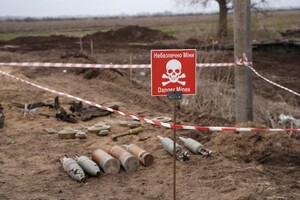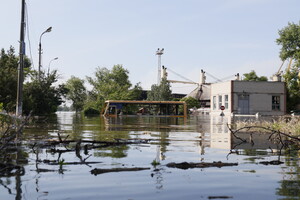Environment Impact Assessment – A Marker of Readiness for Post-War Recovery
Last year's recommendations of the International Expert Conference on Recovery, Reconstruction and Modernization make it abundantly clear for Ukraine: planning for the post-war period must be concerted with the preparation for EU accession and, accordingly, the European Green Deal. In fact, this will serve as an incentive for a sharp increase in investments in the “green” recovery of Ukraine. The major risk in this process is Ukraine’s unfortunate and traditionally careless attitude at the level of implementation. In this particular case, it is related to the environmental impact assessment (hereinafter referred to as EIA) of new projects.
Generally speaking, the legal basis of EIA for the fulfillment of the relevant obligations under the Association Agreement with the EU (Directives 2011/92/EU and 2014/52/EU) are legally enshrined by Ukraine in the relevant law and resolution of the Cabinet of Ministers.
However, the practice, market of expert services and the thinking of business entities regarding EIA cannot not be any further from approaches adopted elsewhere in Europe.
First of all, EIA is perceived by businesses mainly as a coercion, a burden, a threat to economic benefits due to, as they believe, unjustified costs for ecological safety.
Moreover, in addition to the fact that during the implementation of projects it is necessary to invest funds in environmental protection (from 1 to 15% of capital costs according to UNEP research), to obtain permission documents it is necessary to prepare and submit to the authorized body the EIA Report. This is a prerequisite, but not a guarantee, of an affirmative decision for business expansion.
The focus of businesses is completely diverted from the advantages of EIA. The last thing they think about is that this assessment provides an opportunity to reduce the cost and timeline of the project, prevent potential penalties and ultimately improve the effectiveness of business planning.
Secondly, project initiators place the responsibility for the quality of environmental impact assessment squarely on EIA developers.
As a rule, entrepreneurs do not grasp a rather complex EIA methodology and order such an assessment by hiring relevant specialists – EIA developers – directly or through the Prozorro system.
Unexpected as it may be, already at the stage of concluding the contract, the risk of non-recognition of the EIA report by the authorized body and its refusal to provide a positive conclusion on the admissibility of the project is caused by the EIA customer himself. The primary source of failures is the contract terms, which are dictated by the customer rather strictly and without alternative according to the tender procedures and do not include his obligations to provide complete, reliable and timely information at the request of the developer.
Limited, inappropriate and sometimes deliberately and carefully hidden raw data (for example, about environmental objects that may be negatively affected) is a blatant manipulation of the customer in order to save future capital investments. It inevitably leads to gaps in the minimization of environmental risks as well as insufficient cost-effectiveness and technical soundness of solutions in the report developed by the executor. In turn, the authorized body easily identifies this thanks to receiving clarified information at its request because the business entity cannot refuse to provide it. In the end, in addition to the inadmissibility of environmental risks, the basis for refusing to issue a positive EIA opinion for a project will be the detection of inaccurate information in the EIA report (paragraph 12 of the Procedure for the transfer of documentation for the provision of an environmental impact assessment opinion and financing of an environmental impact assessment and section 5 of Article 4-1 of the Law of Ukraine “On the permit system in the sphere of economic activities”).
Thirdly, manipulations with payment for EIA services has a detrimental effect on the market of quality providers of the relevant services.
As noted in the UNEP study, the project initiator should bear the costs of preparing EIA reports based on the “polluter pays” principle.
It follows from paragraphs 6, 14 and appendix 6 to the Government Procedure that the final consideration of the EIA report by the public and the expert commission is carried out on the condition that the economic entity fully pre-pays for expert services, rental of premises and technical support for public hearings, etc. for the preparation of the EIA opinion regarding the admissibility of a project.
At the same time, all customer contracts without exception (at least through the Prozorro system) categorically specify that a 100 percent post-payment of the developer's services is provided. Not even after the development of the EIA report (which is approved by the customer himself) and the completion of all the lengthy accompanying procedures, but only after the provision of an integral additional service — the publication of the opinion of the authorized body in the media. Thus, the customer covertly makes payment under the contract dependent on the positivity of the opinion, and the EIA developer may not receive remuneration at all – not through his own fault, but because of a negative EIA opinion. At the same time, the polluter pays” principle is violated.
It is worth noting that the avoidance of advance payments for intellectual services (due to the lack of a guarantee of their quality) is a common international practice. However, this is subject to an exception if contractors attract and pay staff fees and rent real estate. In other words, services that require ongoing research support should be automatically approved for prepayment.
Some examples from the regulations for payment of services of IFI consultants will not be amiss here: the EBRD pays for the services of consultants (fees, per diems and compensation) after the end of the engagement period if it is less than two months; The World Bank determines the schedule of payments to consultants and, in case of delay in payments, pays interest for the delay.
Without changes in the three aforesaid aspects, a proper integration of Ukrainian business into the all-European market according to “green” principles is unlikely to happen, as is the attraction of investments for its ecologically clean modernization and “green” post-war reconstruction of Ukraine in general. It is worth starting at least with changing the attitude of entrepreneurs towards EIA services.
Is everything really so categorical? Quite so, because this is exactly what the EU Taxonomic Regulation 2020/852 is about, which, in fact, obliges the participants of the EU financial sector to channel investments to projects and measures of sustainable development, as well as to the types of economic activity that are most needed to achieve the goals of the European Green Deal.
Therefore, the EIA is a component of checking the planned project in terms of its compliance with the EU Taxonomy of Sustainable Investments and an inalienable component in decision-making on granting or denying funding.
All things considered, there is an objective alternative of whether it will be real investments in the necessary amount or just empty talks about them for the development of Ukraine according to European standards. As much as we would like to implement the first option, everything will depend on the full-scale implementation at the national level of EU norms on environmental assessment and appropriate practical implementation of this policy instead of the current eye-washing.
Read this article in russian and Ukrainian.
Please select it with the mouse and press Ctrl+Enter or Submit a bug

















 Login with Google
Login with Google